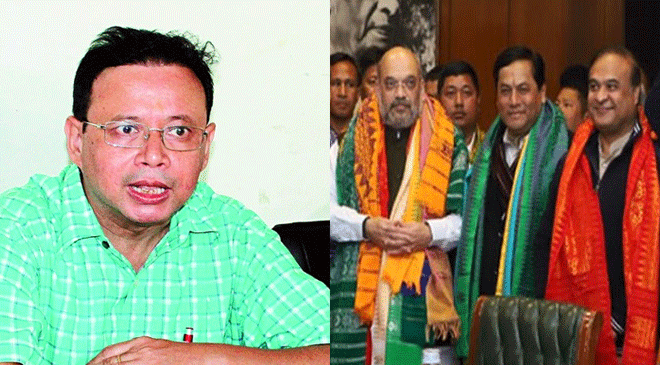Bodo Peace Accord Will Create Tensions: Upamanyu Hazarika

- Jan 29, 2020,
- Updated Jan 29, 2020, 12:48 AM IST
Guwahati, January 29, 2020:
The third Bodo Accord will create more problems than resolving any, thereby stripping the non-Bodos of their rights residing in the Bodoland Territorial Autonomous District (BTAD), now renamed as Bodo Territorial Region (BTR), alleges Convener, Prabajan Virodhi Manch, Upamanyu Hazarika.
Hazarika has accused Assam Chief Minister Sarbananda Sonowal-led state government of “widening the rift between indigenous communities and further worsening the status of non-Bodo indigenous communities in BTAD who had earlier become second class citizens under the 2003 Accord.”
ALSO READ: Bodo Leaders Given Rousing Welcome in Homeland after Signing of Historic Pact
According to Hazarika the government should have reviewed the working of the Bodoland Territorial Council (BTC) that was set up in 2003 instead of enhancing its powers. “…the indigenous non-Bodo population have been reduced to second class citizens after the establishment of this Council, by reserving 25 out of the 40 seats in the Council for Bodos who comprise only 27% of the BTAD population,” he stated in his statement released today.
The Prabajan Virodhi Manch convener expressed his concerns over the new powers given by the Bodo Peace Accord that was signed between the Government of India (GoI) and the leaders of the four factions of the National Democratic Front of Bodoland (NDFB) in New Delhi.
ALSO READ: Here's All You Need to Know about the Historic Bodo Peace Accord
“Out of 525 ethnic communities in India, 115 alone are in Assam and in any given area several ethnic communities co-exist. Any policy aimed at advancement of any one community is bound to have implications for the co-existing ones and which is today the case with BTAD areas,” stated Upamanyu Hazarika.
Citing the example of Sukapha, the founder of the longest reigning dynasty in Assam, he said that amalgamating all the indigenous communities into one common identity was the need of the hour.
Hazarika further stated, “The need is to address the aspiration of the non Bodo indigenous communities in BTAD, by reversing the discrimination faced by them and having equal political and other rights.”
Support Inside Northeast (InsideNE), an independent media platform that focuses on Citizen-centric stories from Northeast India that are surprising, inspiring, cinematic and emotionally relevant.
Readers like you make Inside Northeast’s work possible.
To support our brand of fearless and investigative journalism, support us HERE.
Download:
The Inside Northeast app HERE for News, Views, and Reviews from Northeast India.
Do keep following us for news on-the-go. We deliver the Northeast.